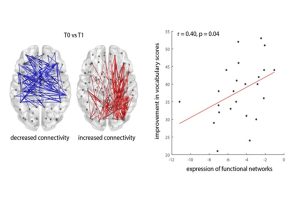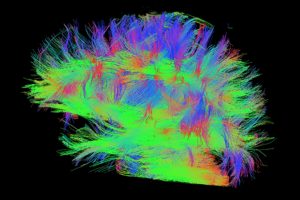The research we conduct seeks to explain human brain functioning and its relation to cognition, primarily with the use of magnetic resonance imaging (MRI). This has been evolving rapidly, and our work has taken advantage of many new developments. We began with fMRI research that characterized the processing of specific, circumscribed brain regions, such as some of the regions centrally involved in language processing. Because it was clear from the onset that no one brain region worked alone, our work broadened to encompass the functioning of large-scale networks of brain regions in various types of thinking tasks. More recently, we have included the use of magnetic resonance spectroscopy (MRS) to examine neurochemistry to help understand brain functioning in both healthy and clinical populations. As a result of this advancing analytic and technological infrastructure as well as my collaborations across campus, the research questions we address are broad. We love science, particularly cognitive neuroscience.
Addiction
In collaboration with our clinical science and behavioral neuroscience colleagues we have used MRS to study neurochemical differences in both cannabis users and individuals with alcohol use disorder.
Language processing
We study language processing broadly, from sentence comprehension and single word processing to second language acquistion. We also have collaborated with colleagues in the Department of Speech and Hearing Sciences in the study of language processing in patients with dementia, epilepsy and the Department of Second Language Studies.
Problem-solving/Gaming
Our work in this domain has examined planning, spatial processing, cognitive control and the impact of video game play on neurocognitive functioning. We have studied spatial processing and math in children as well as the role of finger processing in arithmetic and number processing. We are also studying how video games impact declarative memory processing.


